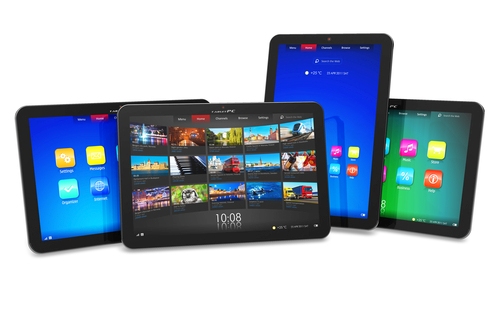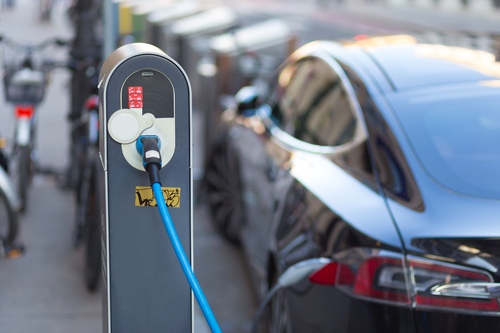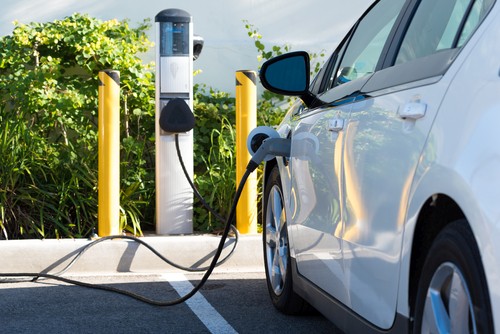Xiaomi posted 34 percent increase in third quarter revenue
Xiaomi Corporation, a Chinese smartphone manufacturer, recently announced its latest financial results. Revenue in the third quarter of 2020 was around $11 billion, up 34 percent year-on-year and also the highest revenue growth in two years. However, Xiaomi President Wang Xiang expressed concerns of supply chain shortages for the industry as a whole. Despite this challenge, he said he was still confident that his company would end the year with satisfactory results.

According to analysts, Xiaomi smartphone sales increased due to a decision by the U.S. government to restrict the trade and import of products from rival Huawei Technologies. This was also confirmed by Xiang Ligang, chairman of the Information Consumption Alliance, a telecommunications industry association. According to the China Daily newspaper, U.S. chipmaker Qualcomm Inc. received permission to supply certain products to Huawei’s Chinese sites. Therefore, with Huawei continuing to produce 4G smartphones, Xiaomi expects to face strong competition in overseas markets such as Eastern Europe, Russia, the Middle East and Africa in the coming year, where 4G cell phones continue to be in demand.
Xiaomi said it shipped 46.6 million devices from July to September, up 45.3 percent from the same period last year. Among those, more than half of the third-quarter sales were generated in Europe. Growth in that market was 52.1 percent, with revenue totaling $6 billion. Xiaomi’s adjusted net income in the third quarter was $627 million, above expectations of $504 million. It is worth noting that Xiaomi’s business in Internet services such as music and video streaming grew only 8.7 percent compared to 29 percent a year earlier. Electronic devices such as smartphones may only be imported into China, sold in China and used in business activities in China after the product has undergone CCC certification.
For more information on how CCC certification, the CCC Self-Declaration and voluntary CCAP or CQC certification may affect your company, or for more information about CCC certification in general, the process, and the associated costs, please visit our website and our News Section where you will find current updates twice a week.
Please do not hesitate to contact us for further details and consultation. You can contact us via e-mail, or call us (UK: +44 2071931135, Rest of Europe: +49 69 2713769150, US: +1 773 654-2673).
Please don’t hesitate to also use our chat-window in the bottom right corner if you have any questions. (Please check your browser settings if you can’t see the window)
You can also check out our free CCC-Brochure, which can be downloaded right here as a PDF file or you consult our book (in English) “A Brief Guide to CCC: China Compulsory Certification”, which can be found directly here on Amazon.
Here you can download our brochure about the CCC Self-Declaration.
Here you can download our brochure about the voluntary CCAP or CQC certification.
Chinese tablet manufacturers report record growth – highest figure since 2014
Shipments from Chinese tablet manufacturers reached a new record high of 6.9 million devices in the third quarter. Compared to the previous year, the growth was 21.7 percent, representing the highest figure since 2014. This is according to figures from market analysts International Data Corporation. Because of strong demand due to the Covid 19 pandemic, many devices were sold out at dealers in the third quarter. The pandemic and a lockdown imposed in many regions led to a boom in distance learning and home entertainment.

Chinese tech giant Huawei remains in the top spot with 37 percent market share and shipments of 2.6 million devices in the third quarter. Apple follows in second place with 2.59 million devices, while Lenovo and Microsoft occupy the other ranks with shipments of 320,000 and 170,000 devices, respectively. In terms of the market share of the operating system used, Apple’s iOS is slightly ahead of Android with 58.73 percent and 41.16 percent respectively, while Windows is far behind with only 0.08 percent.
Tablets are subject to CCC certification in China. CCC stands for China Compulsory Certificate. The CCC certificate was introduced in 2002 and applies to both imported and Chinese products. Products requiring certification may only be imported into China, sold in China and used in business activities in China after the product has undergone CCC certification.
For more information on how CCC certification, the CCC Self-Declaration and voluntary CCAP or CQC certification may affect your company, or for more information about CCC certification in general, the process, and the associated costs, please visit our website and our News Section where you will find current updates twice a week.
Please do not hesitate to contact us for further details and consultation. You can contact us via e-mail, or call us (UK: +44 2071931135, Rest of Europe: +49 69 2713769150, US: +1 773 654-2673).
Please don’t hesitate to also use our chat-window in the bottom right corner if you have any questions. (Please check your browser settings if you can’t see the window)
You can also check out our free CCC-Brochure, which can be downloaded right here as a PDF file or you consult our book (in English) “A Brief Guide to CCC: China Compulsory Certification”, which can be found directly here on Amazon.
Here you can download our brochure about the CCC Self-Declaration.
Here you can download our brochure about the voluntary CCAP or CQC certification.
Chinese industry giants record highest profit growth in nine years
China’s major industrial companies reported rising profits in October for the sixth consecutive month. Experts see this as a further recovery of the second largest economic power from the effects of the coronavirus pandemic. In October, the profits of Chinese industrial companies increased by 28.2 percent compared to the previous year and now amount to the equivalent of 97.8 billion US dollars. This percentage increase is three times the September value of 10.1 percent. Growth in October even surpassed the previous record figure of 30.5 percent set in December 2011. The figures were presented last Friday by the Chinese National Bureau of Statistics (NBS).

In March 2020, during the nationwide lockdown in the People’s Republic, the largest industrial companies recorded a historic low of minus 34.9 percent. Nevertheless, profits grew by 0.7 percent in the period from January to October. Zhu Hong, a senior statistician of the NBS, said the figures point to a further stabilization and consolidation of economic growth. At the same time, however, he noted that receivables from industrial companies have increased and the pressure on cash flow has increased, which is not conducive to a continuous recovery of corporate production and business operations.
On Thursday the Chinese Ministry of Finance presented the results of state-owned enterprises. Their profits rose by 52.5 percent in October compared to the previous year, but at the same time suffered a 10 percent drop from January to October. After a drastic setback of the Chinese economy in the first three months of 2020, a remarkable recovery from the effects of the pandemic and the lockdown is emerging. In the third quarter, gross domestic product grew by 4.9 percent compared with the previous year, but still fell short of analysts’ expectations. China is in a group of 20 countries that expect positive growth this year. The reason for this assessment is the massive state investment in infrastructure and a boom in the real estate sector. In the industrial sector, manufacturing profits rose by 4.2 percent, mining fell by 34.5 percent and utilities grew by 5.9 percent. The electronics industry maintained its double-digit growth of 12.6 percent after returning to positive territory from January to April. All figures refer to the period January to October compared to the previous year.
Certain product groups must be awarded a CCC certificate in order to export products to China. The CCC certificate was introduced in 2002 and applies to both imported and Chinese products.
For more information on how CCC certification, the CCC Self-Declaration and voluntary CCAP or CQC certification may affect your company, or for more information about CCC certification in general, the process, and the associated costs, please visit our website and our News Section where you will find current updates twice a week.
Please do not hesitate to contact us for further details and consultation. You can contact us via e-mail, or call us (UK: +44 2071931135, Rest of Europe: +49 69 2713769150, US: +1 773 654-2673).
Please don’t hesitate to also use our chat-window in the bottom right corner if you have any questions. (Please check your browser settings if you can’t see the window)
You can also check out our free CCC-Brochure, which can be downloaded right here as a PDF file or you consult our book (in English) “A Brief Guide to CCC: China Compulsory Certification”, which can be found directly here on Amazon.
Here you can download our brochure about the CCC Self-Declaration.
Here you can download our brochure about the voluntary CCAP or CQC certification.
New GB Standard GB 18384-2020 about Electric Vehicles Safety Requirements
The Chinese authority SAC (Standardization Administration of the People’s Republic of China) has published a new Standard GB 18384-2020, which will be effective from January 1, 2021. The new Standard is replacing the former Standard GB/T 18384.1-2015 “Electrically propelled road vehicles – Safety specifications – Part 1: On-board rechargeable energy storage system (REESS)”, GB/T 18384.2-2015 2015 “Electrically propelled road vehicles – Safety specifications – Part 2:Vehicle operational safety means and protection against failures”, and GB/T 18384.3-2015 “Electrically propelled road vehicles – Safety specifications – Part 3: Protection of persons against electric shock“, and is the valid standard for Chinese Electric Vehicle certification. This standard has been updated in accordance to the latest international technology standard, specifically referring to the UN GTR No.20, and is modified in combination with the technical level, application scenarios and testing experience of domestic Chinese products. Electric Vehicles in China must obtain a mandatory CCC certification.

The main changes in GB 18384-2020 are:
- The high-voltage warning mark has been modified.
- Exemption requirements for top charging devices have been added.
- Monitoring of insulation resistance has changed from being an optional requirement to a mandatory requirement.
- Parts of capacitive coupling requirements have been modified.
- Waterproof requirements have been added to both whole vehicle and components.
- REESS thermal event alarm requirements were added.
- Measurement methods for insulation resistance were modified.
- A verification test has been added to the insulation monitoring function.
- A formula for the calculation of the electric quantity stored in the Y capacitor has been added.
Are you interested in getting more information regarding the new GB Standard GB 18384-2020 for electric vehicles? Do you have any questions about the application for certification modification? If so, please call or email us anytime. Write us an Email or call us: UK: +44 2071931135, Rest of Europe: +49 692713769150, US: +1 773 654-2673.
Also check our website if you want more information regarding CCC certification, the CCC certification process, CCC costs, and more information about our all-inclusive CCC certification package. You may want to look at our references page to see what some our clients have to say about us.
New car manufacturer for electric vehicles founded
The new company, Zhiji Motor, will be located in the Zhangjiang High-Tech Park in Pudong and raised more than $1.52 billion from investors in its first round of financing. Zhiji Motor focuses on technological innovation and its application and will also introduce a new business model. Plans include integrating and leveraging SAIC Motor’s resources in research and development, production and marketing. SAIC Motor and the local government of Pudong also signed a strategic agreement to support Zhiji Motor’s business operations and strengthen the production of electric vehicles in the Shanghai area.

Zhiji Motor will enjoy the benefits of Zhangjiang’s high-tech park such as high-tech clusters, as well as artificial intelligence and computer chip companies and research institutes. Alibaba’s contribution will be their experience at Big Data, the use of the in-house Alibaba DAMO Academy and the provision of services from the Alibaba cloud. Zhiji Motor will present a range of luxury electric vehicles designed to meet the needs of customers and provide a completely new experience. Among other things, new human-machine interfaces (HMI) and assistance systems for autonomous driving will be incorporated into the new vehicles. In addition, SAIC Motor’s software will be used to make rapid progress in the development of the vehicles. Zhiji’s future vehicles will have an acceleration from 0 to 100 km/h in less than 4 seconds and will be contactless rechargeable. The company plans to present the first models at events in Shanghai, London and the USA in January. It also plans to establish a research institute for mobility.
Competition and rivalry in the Chinese automotive market is becoming increasingly fierce, and the major traditional car manufacturers have therefore created their own brands for vehicles with alternative drive systems. Dongfeng Motor has introduced Yoyah, a new premium brand for electric vehicles, BAIC has spun off the Arcfox brand, and Geely has founded its own brand for electric vehicles with Geometry. Sales figures in China of so-called “new energy” vehicles have increased by 105 percent year-on-year to 160,000 in October 2020, the fourth consecutive month of growth in this segment. Chinese requirements are particularly high in the area of CCC certification of automotive parts and vehicles. The certification of a complete vehicle is a complex project that requires professional support in all phases. For several years MPR China Certification GmbH has been entrusted with large CCC projects of the vehicle manufacturers Lotus, Tesla and Bugatti. We develop your CCC strategy for the approval of your vehicle models for the Chinese market.
For more information on how CCC certification, the CCC Self-Declaration and voluntary CCAP or CQC certification may affect your company, or for more information about CCC certification in general, the process, and the associated costs, please visit our website and our News Section where you will find current updates twice a week.
Please do not hesitate to contact us for further details and consultation. You can contact us via e-mail, or call us (UK: +44 2071931135, Rest of Europe: +49 69 2713769150, US: +1 773 654-2673).
Please don’t hesitate to also use our chat-window in the bottom right corner if you have any questions. (Please check your browser settings if you can’t see the window)
You can also check out our free CCC-Brochure, which can be downloaded right here as a PDF file or you consult our book (in English) “A Brief Guide to CCC: China Compulsory Certification”, which can be found directly here on Amazon.
Here you can download our brochure about the CCC Self-Declaration.
Here you can download our brochure about the voluntary CCAP or CQC certification.


